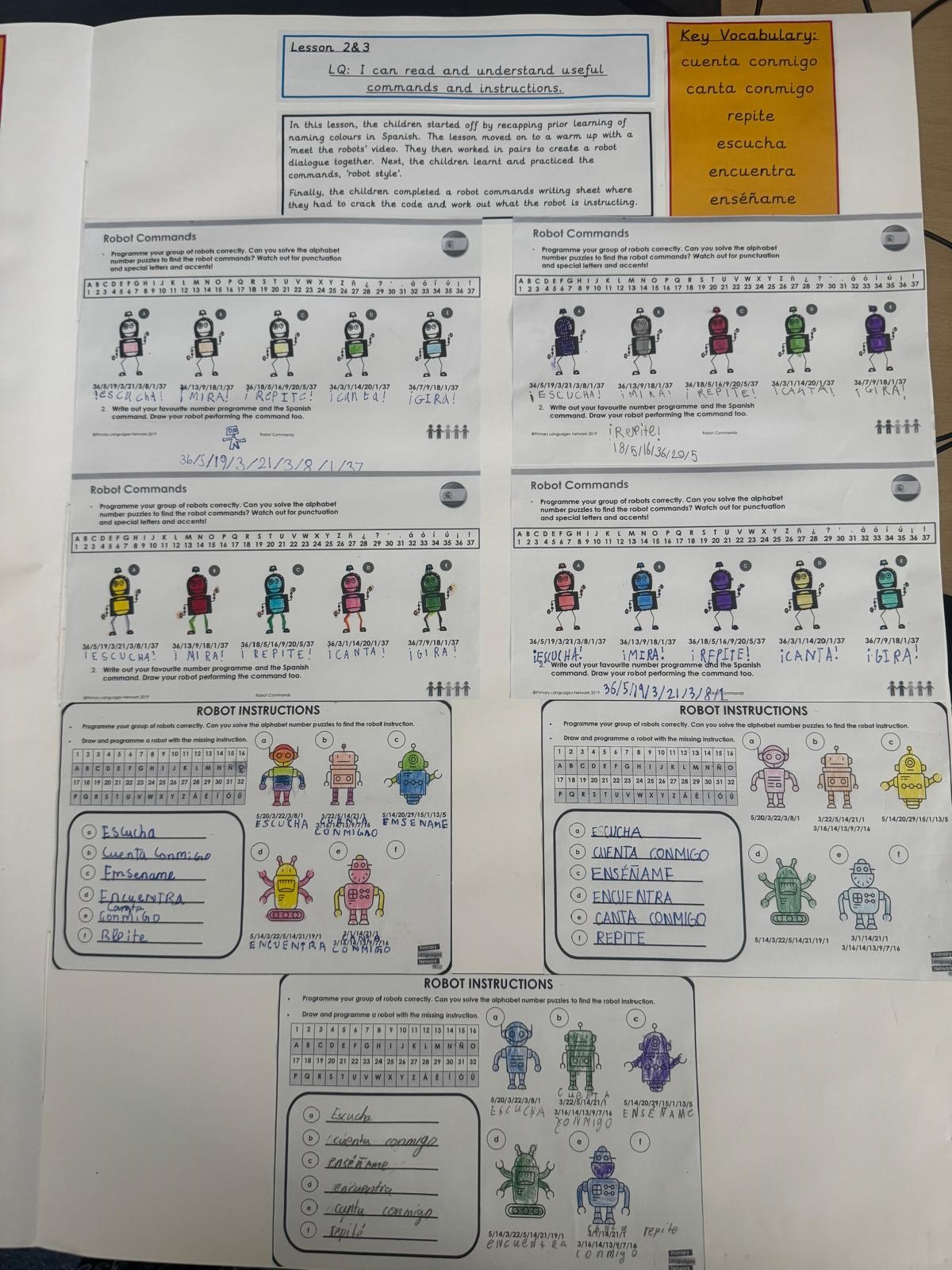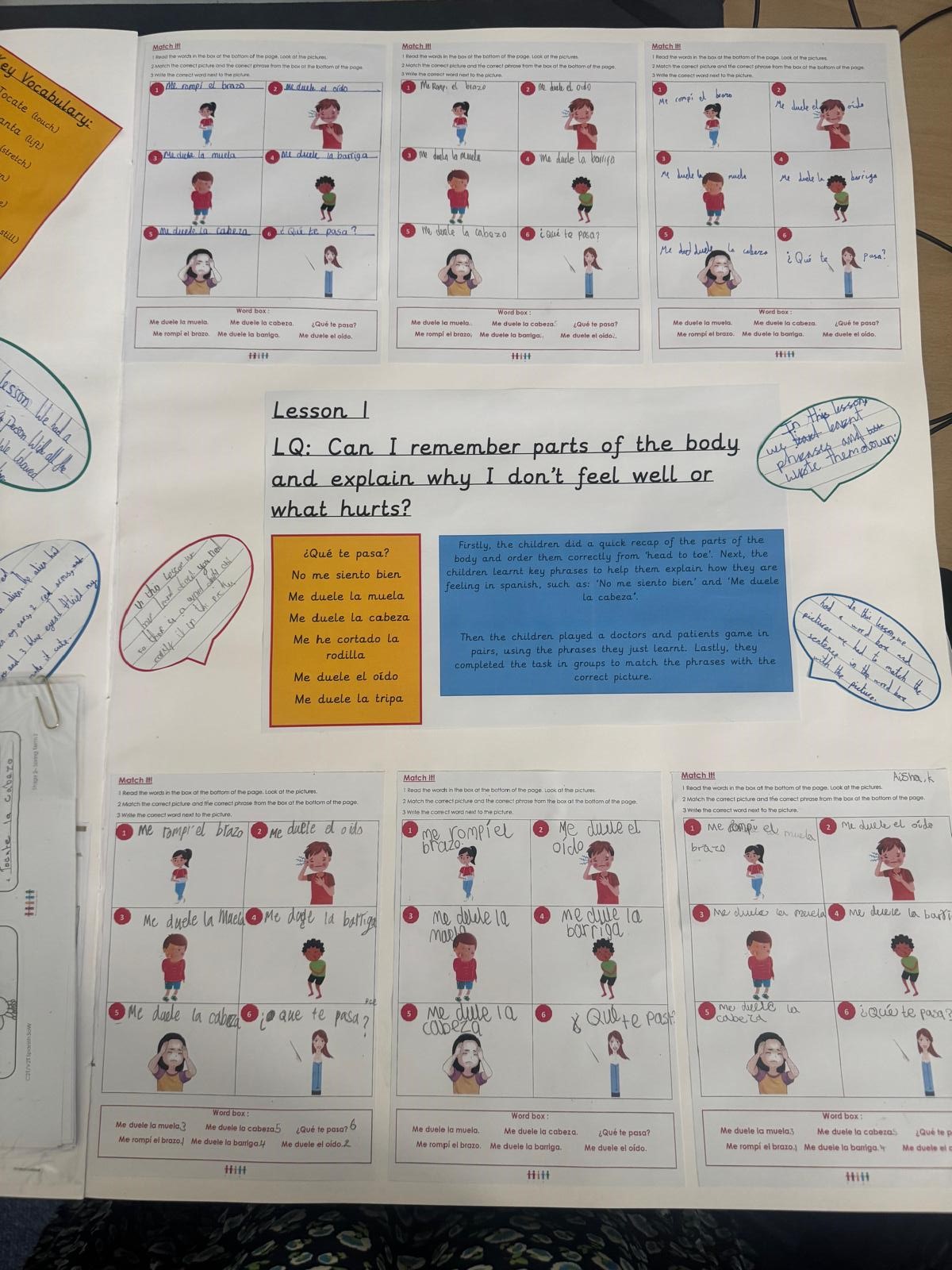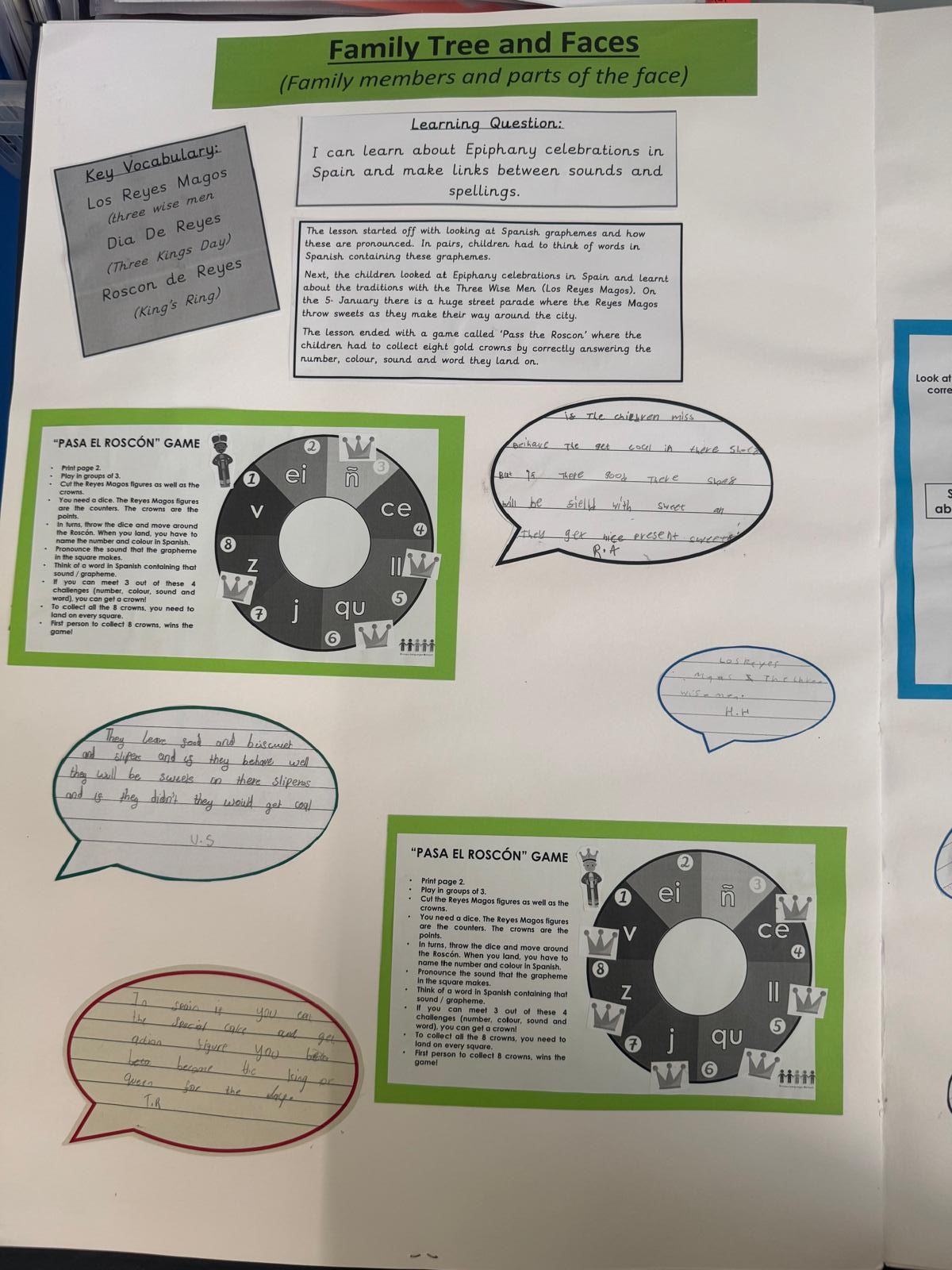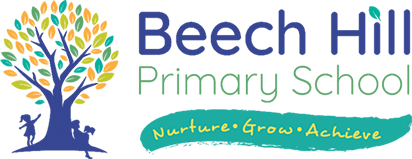Modern Foreign Language
Spanish Curriculum
Intent
At Beech Hill, we want all children to enjoy learning a foreign language from an early age, develop linguistic competence, extend their knowledge of how language works and explore differences between Spanish, English and their mother tongue. We appreciate diversity and we value the role that language learning plays in developing global competence. We want to raise awareness of belonging to a multilingual and multicultural world - providing insight into different cultures and traditions while also allowing children to reflect on their own experiences.
The curriculum is designed to:
- ensure that all children in Key Stage 2 progressively develop a key foundational knowledge (including vocabulary, phonics and grammar) of Spanish in preparation for further foreign language teaching at Key Stage 3
- introduce children in Year 2 to Spanish, in preparation for learning it formally in Key Stage 2.
- foster children's curiosity and deepen their understanding of the wider world
- enable children to express their ideas, opinions and thoughts in another language
- progressively develop children’s ability to understand and communicate in another language, in both speech and writing
- provide the foundation and enthusiasm for learning further languages, equipping children to study and work in other countries in the future
Through the teaching of sequenced and high-quality Spanish lessons at Beech Hill, the children will:
- learn vocabulary that is focused on familiar, routine and practical communication
- speak with increasing confidence, fluency and spontaneity - finding ways of communicating what they want to say and ask through conversations, presenting ideas/opinions, describing people, places, things and actions.
- know the key sounds of the Spanish language and their corresponding graphemes and be able to apply this knowledge when speaking and reading aloud – while continually improving the accuracy of their pronunciation and intonation
- explore, understand and respond to spoken and written language from a variety of authentic sources including songs, rhymes, stories and literature
- write at varying length to describe people, places, things and actions - using and understanding the variety of grammatical structures that they have learnt
- acquire language learning strategies for memorisation and retrieval as well as for listening, reading and understanding
- be able to use a bi-lingual dictionary and draw comparisons with English and/or their mother tongue to decode unfamiliar language of increasing complexity
- be able to manipulate language to speak or write sentences creatively (including from memory) using prior knowledge of vocabulary and grammar.
Curriculum Implementation
Spanish, at Beech Hill, is taught by class teachers and delivered through a scheme of work which is based on the statutory guidelines set out in the National Curriculum Languages Programme of Study for Key Stage 2 (DfE September 2013). All children in Key Stage 2 have a weekly lesson of 30 minutes. In the summer term of Year 2, children are introduced to Spanish through short, informal lessons, in form of songs and rhymes. This is to prepare them for the lessons that start in Year 3.
Our Spanish curriculum progressively develops children’s skills, knowledge and vocabulary to meet the ambitions of the curriculum intent. From Year 3 to Year 6, children extend and practise their language skills across the disciplines of speaking (integrated phonics), listening, reading, and writing, including understanding and using simple grammar.
Learning is carefully sequenced to introduce new vocabulary as well as build on prior learning. At the beginning of each lesson, children ‘recap’ the vocabulary they have been learning in that unit. High frequency words, such as numbers, colours and basic grammar, come up in most units.
Spanish is introduced to pupils in Year 3 in a way that is enjoyable and fun, focusing on repetition through songs, gestures and visual clues. Children are encouraged to explore the Spanish language and are supported to use their ‘language detective skills’ to recall previously learnt language, take risks and learn from mistakes and to make educated guesses using context. As children progress into Upper Key Stage 2, they have opportunities to use language creatively in both spoken and written activities, drawing on their prior knowledge about the language and their increasing ability to apply grammatical rules.
Within the classroom, high frequency words, as well as questions and classroom vocabulary, are displayed to create a supportive and stimulating learning environment. Key vocabulary is also regularly added to Spanish displays.
Lessons are well resourced and planned specifically to achieve the learning intention through active and highly focused activities where children work as a whole class, in small groups, pairs or as individuals. Knowledge organisers are utilised to engage and support learners. Our ‘Quality First Teaching’ approach ensures that specific steps are planned to model and scaffold learning to meet the needs of all learners; ensuring that SEND pupils can access similar learning.
Opportunities for writing are planned so that children can use language creatively and independently. Children have regular opportunities to edit their written work and any errors are discussed to help develop understanding. Each class has a Spanish scrapbook, which is used to record learning and is continued across years so that children can refer back to key prior learning as well as evidence progress.
Children are encouraged to share their learning at home by singing songs, practising vocabulary taught in the lesson and accessing online games through the school website.
Many pupils arrive at Beech Hill with a wealth of cultural capital. The Spanish curriculum weaves in cross curricular learning and cultural elements (e.g. special celebrations, food, traditions and ways of life) of the Spanish-speaking world which helps develop children’s knowledge and understanding of the wider world. We also celebrate Spanish Day every year, where children have the opportunity to try Spanish food, as well as take part in fun activities, and using their Spanish vocabulary outside of the classroom.




